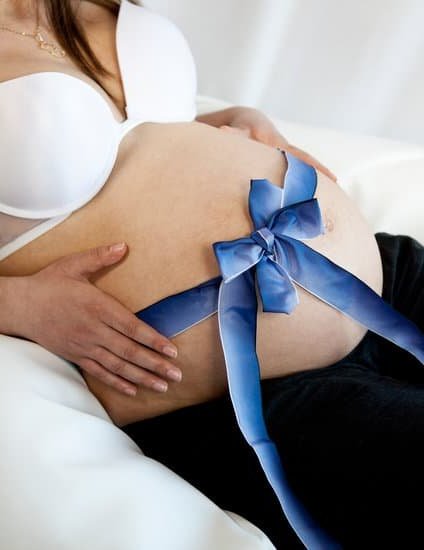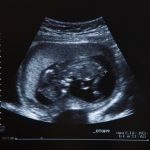Pregnancy is a period of immense joy and anticipation for many women, but it can also come with its fair share of discomforts and challenges. One such common issue that some pregnant women may experience is pregnancy rhinitis. This condition, characterized by nasal congestion and other symptoms similar to those of allergies, can be bothersome and affect the overall well-being of expectant mothers. But when does pregnancy rhinitis start?
Pregnancy rhinitis typically begins during the second trimester of pregnancy, around the 14th week. However, some women may start experiencing symptoms as early as the first trimester. This condition is often mistaken for regular allergies due to its similar symptoms, such as nasal congestion, sneezing, and a runny nose. Understanding the timing of when pregnancy rhinitis starts can help expectant mothers better manage and alleviate their discomfort throughout their pregnancies.
During pregnancy, hormonal changes play a significant role in the onset of pregnancy rhinitis. The increased levels of estrogen and progesterone can cause blood vessels in the nasal passages to swell and lead to congestion. Additionally, the increase in blood volume during pregnancy can further contribute to nasal congestion. It is essential for pregnant women who suspect they have pregnancy rhinitis to consult with their healthcare provider for proper diagnosis and treatment options tailored to their specific needs.
What Is Pregnancy Rhinitis?
Pregnancy rhinitis, also known as rhinitis of pregnancy or nasal congestion during pregnancy, is a common condition that affects many pregnant women. It is characterized by congestion, stuffiness, and a runny nose, similar to the symptoms of allergic rhinitis. However, unlike allergic rhinitis which is triggered by allergens such as pollen or dust mites, pregnancy rhinitis is believed to be caused by hormonal changes during pregnancy.
Symptoms of Pregnancy Rhinitis
Women experiencing pregnancy rhinitis may notice symptoms such as nasal congestion, sneezing, runny nose, postnasal drip, and difficulty breathing through the nose. These symptoms can range from mild to severe and can be bothersome for some pregnant women. However, it’s essential to differentiate between pregnancy rhinitis and other conditions like allergies or sinus infections to ensure appropriate treatment.
Effects of Pregnancy Rhinitis
Although pregnancy rhinitis itself is not harmful to the mother or baby, it can still impact the quality of life for pregnant women. Chronic nasal congestion can lead to disrupted sleep, fatigue, headaches, and decreased productivity. Additionally, breathing difficulties through the nose may also affect a woman’s sense of smell and taste. Therefore, early detection and proper management of pregnancy rhinitis are crucial in alleviating these symptoms and improving the overall well-being of both the mother and baby.
Symptoms and Effects of Pregnancy Rhinitis
Pregnancy rhinitis is a common condition that affects many pregnant women. It is characterized by nasal congestion, sneezing, and a runny nose, similar to allergic rhinitis. However, pregnancy rhinitis is not caused by allergies but rather hormonal changes that occur during pregnancy. These changes can lead to increased blood flow to the mucous membranes in the nose, causing them to become swollen and congested.
Symptoms of Pregnancy Rhinitis
The symptoms of pregnancy rhinitis typically include nasal congestion, sneezing, runny nose, and postnasal drip. Some women may also experience a decreased sense of smell or taste due to the congestion in their nasal passages. These symptoms can range from mild to severe and may worsen as the pregnancy progresses.
Effects of Pregnancy Rhinitis
The effects of pregnancy rhinitis can vary from woman to woman. For some, it may be a minor inconvenience that resolves on its own after giving birth. However, for others, it can significantly impact their quality of life. Nasal congestion can disrupt sleep patterns, leading to fatigue and irritability during the day. In severe cases, pregnancy rhinitis can also affect a woman’s ability to exercise or engage in daily activities.
Managing Symptoms
While there is no cure for pregnancy rhinitis, there are several ways to manage the symptoms and improve comfort. Using saline nasal sprays or rinses can help clear nasal passages and reduce congestion. Steam inhalation and humidifiers can also provide relief by moisturizing the airways.
Some women find relief from using nasal strips or breathing strips at night to open up their nasal passages for better airflow. It is important for pregnant women experiencing symptoms of pregnancy rhinitis to consult with their healthcare provider before starting any treatment regimen.
When Does Pregnancy Rhinitis Start?
Pregnancy rhinitis is a common condition that affects many pregnant women, causing nasal congestion and other symptoms similar to those of allergies or the common cold. But when does pregnancy rhinitis start? For most women, pregnancy rhinitis typically begins around the second month of pregnancy and can last until delivery or even shortly afterwards. However, some women may experience it earlier or later in their pregnancies.
The hormonal changes that occur during pregnancy are believed to be the main cause of pregnancy rhinitis. The increased levels of hormones like estrogen can lead to swelling and inflammation in the nasal passages, resulting in congestion, runny nose, sneezing, and other symptoms. Additionally, the increased blood flow to mucous membranes during pregnancy can exacerbate nasal congestion.
It’s important for pregnant women to differentiate between pregnancy rhinitis and other respiratory conditions like allergies or infections. If you experience symptoms such as fever, yellow or green nasal discharge, facial pain, or prolonged symptoms beyond your pregnancy, it’s crucial to consult with your healthcare provider for proper diagnosis and treatment. Proper management of pregnancy rhinitis can help alleviate discomfort and ensure a smoother pregnancy experience overall.
| Month | Onset of Pregnancy Rhinitis |
|---|---|
| First Trimester | Can start as early as the second month |
| Second Trimester | Common time for onset of symptoms |
| Third Trimester | Symptoms may persist until delivery |
Causes of Pregnancy Rhinitis
Pregnancy rhinitis is a common condition that affects many expectant mothers. This section will delve into the causes of pregnancy rhinitis, shedding light on why some women experience nasal congestion during pregnancy.
1. Hormonal Changes: One of the primary causes of pregnancy rhinitis is the increase in hormone levels during pregnancy, particularly estrogen and progesterone. These hormones can lead to swelling and inflammation in the nasal passages, causing congestion and a runny nose.
2. Increased Blood Volume: Another factor that can contribute to pregnancy rhinitis is the increase in blood volume that occurs during pregnancy. The additional blood flow can cause the blood vessels in the nasal passages to swell, leading to congestion and difficulty breathing through the nose.
3. Nasal Cavity Changes: As the uterus grows throughout pregnancy, it can put pressure on the nasal cavity, leading to congestion and a stuffy nose. Additionally, increased production of mucus membranes in response to hormonal changes can also contribute to nasal congestion.
It’s important for pregnant women experiencing symptoms of pregnancy rhinitis to understand these underlying causes so they can take appropriate steps to manage their condition effectively. From hormonal changes to increased blood volume, there are multiple factors at play that contribute to this common occurrence during pregnancy.
Risk Factors for Pregnancy Rhinitis
During pregnancy, there are certain risk factors that may increase the likelihood of experiencing pregnancy rhinitis. It is important for expectant mothers to be aware of these factors in order to better manage their symptoms and seek appropriate treatment when needed. Some common risk factors associated with pregnancy rhinitis include:
- History of allergies: Women who have a history of allergies, particularly to environmental triggers like pollen or dust, may be more prone to developing pregnancy rhinitis.
- Previous pregnancies: Women who have experienced pregnancy rhinitis in a previous pregnancy are at a higher risk of developing it again in subsequent pregnancies.
- Hormonal changes: The hormonal fluctuations that occur during pregnancy can lead to increased nasal congestion and inflammation, ultimately contributing to the onset of pregnancy rhinitis.
It’s essential for pregnant women to consult with their healthcare provider if they are experiencing symptoms of pregnancy rhinitis, especially if they have any of these risk factors. Early detection and proper management can help alleviate discomfort and ensure a healthier outcome for both the mother and the baby.
Moreover, environmental factors such as exposure to pollutants or irritants can also play a role in exacerbating symptoms of pregnancy rhinitis. Ensuring good indoor air quality, avoiding tobacco smoke, and using air purifiers can help reduce the impact of these external influences on nasal congestion and other allergy-related symptoms during pregnancy. By identifying and addressing these risk factors early on, expectant mothers can take control of their health and well-being throughout this special time in their lives.
Treatment and Management of Pregnancy Rhinitis
Pregnancy rhinitis can be a challenging condition for many expectant mothers to manage, especially since traditional medications may not be safe during pregnancy. However, there are several ways to effectively treat and manage pregnancy rhinitis to alleviate symptoms and improve overall comfort. One of the most common approaches is using saline nasal sprays or rinses to help clear the sinuses and reduce congestion. These are safe options that can be used frequently throughout the day as needed.
In addition to saline sprays, using a humidifier in the bedroom can also help keep the air moist and prevent nasal passages from drying out, which can exacerbate symptoms of pregnancy rhinitis. Another remedy that some pregnant women find beneficial is inhaling steam from a bowl of hot water with a towel over their head, as this can help clear nasal passages and provide temporary relief from congestion.
Nasal strips, which are adhesive strips placed on the outside of the nose, may also help open up nasal passages and make breathing easier for some individuals.
Some expectant mothers may seek natural remedies such as using essential oils like eucalyptus or peppermint oil to alleviate symptoms of pregnancy rhinitis. It’s important to consult with a healthcare provider before using any essential oils during pregnancy to ensure their safety. Overall, finding a combination of treatments that work best for individual needs is key in managing pregnancy rhinitis effectively and improving quality of life during this special time.
| Treatment Method | Benefits |
|---|---|
| Saline nasal sprays/rinses | Safe for frequent use without harmful side effects |
| Humidifier | Maintains moist air to prevent dry nasal passages |
| Inhaling steam | Temporary relief from congestion |
Tips for Preventing Pregnancy Rhinitis
Pregnancy rhinitis, also known as nasal congestion or pregnancy-induced rhinitis, is a common condition that affects many expectant mothers. This condition can cause discomfort, difficulty breathing, and impact the overall quality of life during pregnancy. While it may not be entirely preventable for some women, there are several tips and strategies that may help reduce the severity of symptoms or even prevent pregnancy rhinitis from occurring.
One of the essential steps to prevent pregnancy rhinitis is to maintain good indoor air quality. Keeping your living space clean and free of dust, mold, and other allergens can help reduce the risk of nasal congestion and irritation. Using air purifiers or humidifiers in your home can also help maintain optimal humidity levels, which can alleviate symptoms of dryness and congestion in the nasal passages.
Another important tip for preventing pregnancy rhinitis is to practice good hygiene. Washing your hands frequently, especially before touching your face or nose, can help prevent respiratory infections that may exacerbate nasal congestion. Avoiding exposure to secondhand smoke and other environmental irritants can also reduce the risk of developing symptoms of pregnancy rhinitis.
Furthermore, maintaining a healthy lifestyle through regular exercise, staying hydrated, and eating a balanced diet rich in fruits and vegetables can support overall immune function and reduce inflammation in the body. By taking proactive measures to support your health during pregnancy, you may be able to minimize the likelihood of experiencing pregnancy rhinitis or manage its symptoms more effectively if it does occur.
Conclusion
In conclusion, the early detection and management of pregnancy rhinitis are crucial for expecting mothers to ensure a comfortable and healthy pregnancy journey. Pregnancy rhinitis can start as early as the first trimester and can persist throughout pregnancy, causing symptoms such as nasal congestion, sneezing, and postnasal drip. These symptoms can significantly impact a woman’s quality of life during this special time.
Understanding the causes and risk factors associated with pregnancy rhinitis is key in effectively managing the condition. Hormonal changes, increased blood volume, and inflammation of the nasal passages are some of the factors that contribute to the development of pregnancy rhinitis. By recognizing these triggers and adopting appropriate treatment methods, expectant mothers can alleviate their symptoms and improve their overall well-being.
Overall, maintaining good nasal hygiene, using saline nasal sprays, staying hydrated, and avoiding allergens can help prevent or reduce the severity of pregnancy rhinitis. By being proactive in managing this common condition, pregnant women can enjoy a more comfortable pregnancy experience. It is essential for pregnant women to consult with their healthcare providers when experiencing symptoms of pregnancy rhinitis to receive proper guidance and support throughout their journey to motherhood.
Frequently Asked Questions
How Early Can Pregnancy Rhinitis Start?
Pregnancy rhinitis can start as early as the first trimester of pregnancy. Some women may experience nasal congestion, sneezing, and runny nose due to hormonal changes during this time.
What Week Does Pregnancy Nose Start?
Pregnancy nose, or rhinitis of pregnancy, typically starts around the second trimester which is around weeks 13 to 28 of pregnancy. This is when the increased blood flow and hormonal changes can lead to nasal congestion and other symptoms.
What Is the Difference Between Allergic Rhinitis and Pregnancy Rhinitis?
The main difference between allergic rhinitis and pregnancy rhinitis is the cause. Allergic rhinitis is triggered by allergens such as pollen or pet dander, while pregnancy rhinitis is mainly caused by hormonal changes during pregnancy. Both conditions share similar symptoms like nasal congestion and runny nose, but the underlying cause sets them apart.

Welcome to my fertility blog. This is a space where I will be sharing my experiences as I navigate through the world of fertility treatments, as well as provide information and resources about fertility and pregnancy.





